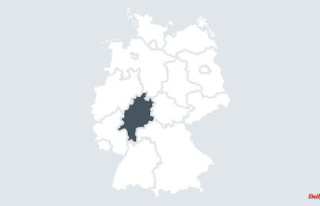Schwerin (dpa / mv) - Mecklenburg-Western Pomerania wants to further expand its economic contacts with other Baltic Sea states in the future. "We still see great opportunities for our economy in the Baltic region," said Prime Minister Manuela Schwesig (SPD) on Monday in Schwerin on the occasion of the state government's second export evening. According to the information, about 75 company representatives accepted the invitation. With Poland and Denmark, two of Mecklenburg-West Pomerania's three most important foreign trade partners are in the Baltic Sea region. That is why companies and partners in the neighboring countries will continue to be given the greatest attention in the future.
The head of government invited the companies present to the Baltic Sea Business Day on September 22nd in Rostock. This conference offers a good opportunity to refresh or expand contacts in the Baltic Sea region. The meeting in Rostock will deal, among other things, with cooperation in the expansion of renewable energies, with a CO2-free Baltic Sea, or with underwater technologies.
Schwesig reminded that Mecklenburg-Western Pomerania set a new record in foreign trade in 2021 with a total volume of 17.1 billion euros, regardless of the restrictions imposed by the corona pandemic. Both import and export have increased. "We have been able to continuously expand our foreign trade since 2016. This is important despite and precisely because of the crises," stressed Schwesig. However, because of the comparatively underdeveloped industry, Mecklenburg-Western Pomerania contributes only little to German exports. The country's share is less than one percent.
According to Schwesig, the state government also supports smaller companies and start-ups directly in developing their export business. A total of 1.4 million euros per year is available for foreign trade promotion. The money would also be used to finance trips abroad by business delegations. "We use our contacts at the political level as a door opener for our companies' business contacts," said Schwesig. Subsidies would also be granted for visiting trade fairs.












